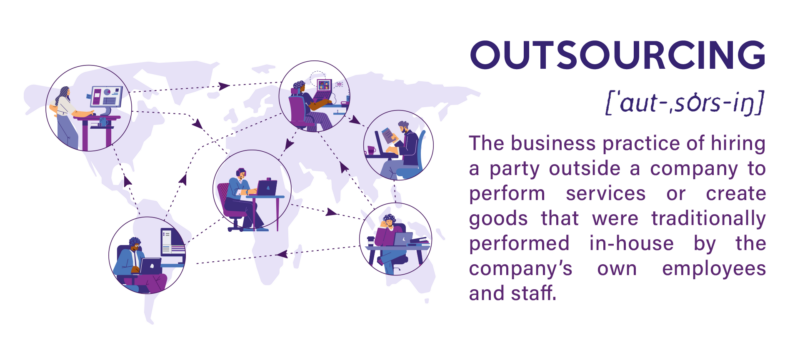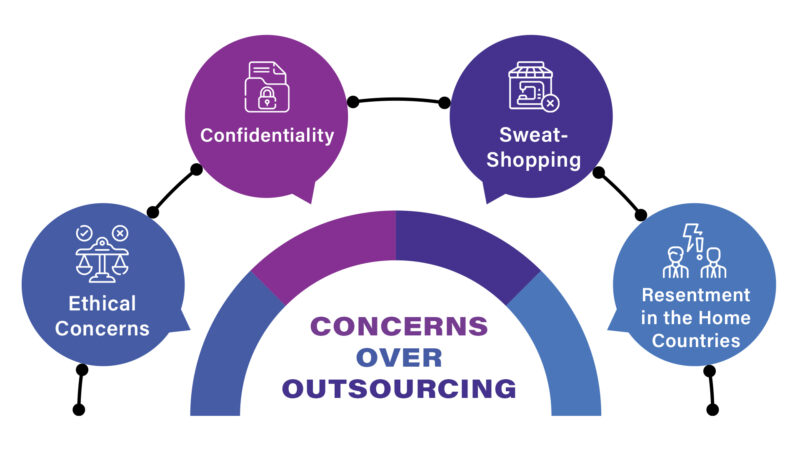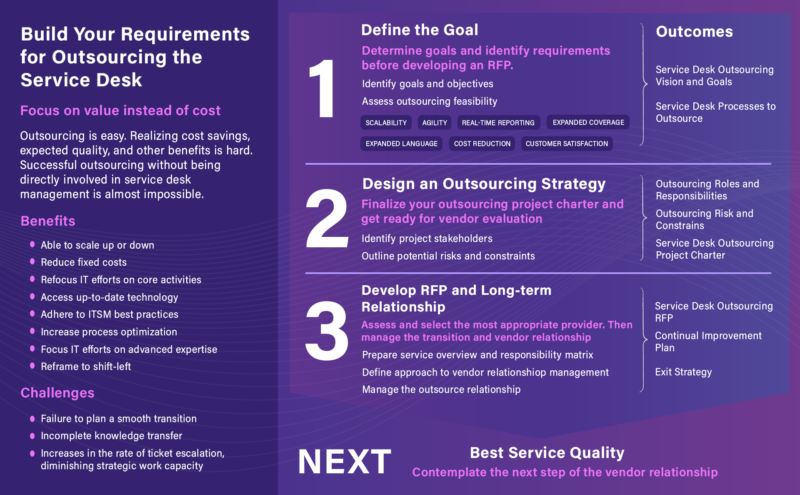In today’s world, characterized by heightened interconnectedness, businesses are recognizing the essential nature of outsourcing to maintain a competitive edge and bolster operational efficiency. Notable tech juggernauts such as Apple have not hesitated to lean on overseas manufacturers to meet their ambitious production targets. Simultaneously, budding startups are seeking specialized knowledge services worldwide, indicating the profound connective fibers threading the contemporary global marketplace. However, this push towards broader horizons doesn’t come without challenges.
As companies scale and expand into various regions, they are confronted with an intricate tapestry of laws and regulations or legal landscape. Many organizations often find the need to collaborate with law firms to navigate this diverse legal terrain adeptly. Moreover, with increased cross-border collaborations, the importance of effective dispute-resolution mechanisms becomes paramount.
In this discourse, we intend to deeply understand these multifarious legal intricacies and the significance of navigating them adeptly.
Understanding the Basics of Outsourcing
Outsourcing represents a strategic agreement wherein a company entrusts another distinct entity to take on and manage specific tasks or activities.

These activities, in the absence of outsourcing, would typically be executed internally by the company itself. Such a decision to outsource can be driven by various reasons, including seeking expertise, cost efficiencies, or operational flexibility. The concept of outsourcing isn’t monolithic; it manifests in several nuanced forms. For instance:
- ITO (Information Technology Outsourcing): When companies delegate IT-related tasks.
- BPO (Business Process Outsourcing): Entrusting specific business processes like customer support.
- KPO (Knowledge Process Outsourcing): Engaging in high-value tasks requiring specialized knowledge, e.g., market research.
The allure of outsourcing lies in its benefits: significant cost savings, access to niche expertise, and enhanced operational flexibility. However, the rewards come with legal risks, demanding close attention and strategic navigation.
Key Legal Concerns in Outsourcing
Contractual Issues
It’s of important for companies to clearly define various aspects of their contracts, especially the scope of work, specific deliverables, and other critical components that form the backbone of the agreement. Any oversight or ambiguity left in these foundational elements can pave the way for potential disputes or even result in the unfortunate breakdown of the intended services. One particularly important facet companies cannot afford to leave to chance is the robust protection of intellectual property rights.
With the vast amount of innovation and proprietary information at stake, it’s imperative to ensure that what is proprietary is securely safeguarded. Moreover, in an era where data breaches are not only frequent but can also severely tarnish a company’s reputation and significantly impact its financial standing, contracts must be meticulously crafted to spell out data protection mandates.
Having such clear directives in place allows businesses to make informed decisions and act proactively, ensuring their assets and reputation remain uncompromised.
Regulatory and Compliance Issues
It’s imperative for enterprises to work with utmost diligence when it comes to adhering to both local and international legal frameworks. Take, for example, a U.S.-based company that outsources its call center operations to the Philippines. Such a company wouldn’t merely be working under the purview of U.S. regulations. They must also be acutely aware of and compliant with Filipino rules and guidelines. Beyond the geographical considerations, there’s an additional layer of complexity: the regulations specific to various industries. In certain sectors, the stipulated guidelines are incredibly stringent. Particularly in areas like the financial and healthcare realms, the information and processes are so sensitive that the sectors come with a set of strict compliance requirements. These mandates are not just recommendations; they are critical directives that businesses cannot afford to overlook or treat lightly.
Data Security and Privacy
In a digital landscape, where regulations such as GDPR and CCPA are setting high standards for data protection, it’s imperative for companies to elevate their vigilance concerning safeguarding data. This heightened sense of responsibility not only means internal adherence but extends to external partners as well, especially when outsourcing tasks or functions.
It’s essential that these outsourcing providers are not just compliant but are also deeply committed to stringent cybersecurity measures. These protocols play a pivotal role in ensuring that all data, particularly personal and sensitive information, is treated with the utmost respect and protection. Companies must take proactive measures to ascertain that the sanctity of such vital data is preserved and uncompromised at all stages of the outsourcing process.

Ethical and Social Implications
In the complex world of business operations and international partnerships, there’s a dimension that goes beyond merely adhering to the black-and-white stipulations of legal documents. Beyond the exacting boundaries of the law, there exists a broader domain characterized by ethics, values, and social responsibility.
For companies looking to outsource, this dimension is of paramount importance. It’s essential for businesses to deeply vet and ensure that their outsourcing partners are not just compliant with the law but are also deeply rooted in ethical labor practices. This includes ensuring fair wages, safe working conditions, and respect for employees’ rights. Moreover, it’s incumbent upon businesses to be discerning about the regions they choose to partner with. Engaging with areas or countries that have questionable human rights records or have been flagged for violations can not only tarnish a company’s reputation but also go against the principles of social responsibility.
In essence, while legal compliance is crucial, a company’s commitment to ethical standards and its broader societal impact cannot be overlooked.
Liability and Risk Allocation
In the intricate dance of business partnerships and contractual agreements, a pertinent question often arises: who shoulders the responsibility when situations don’t go as planned?
Understanding and delineating liability is not just a matter of legal formality but a critical aspect that ensures smooth collaboration between parties. It’s essential to have crystal-clear definitions in place that specify which entity is responsible for which potential setbacks or failures. This clarity not only prevents misunderstandings but also facilitates quicker resolutions in challenging situations.
Furthermore, while hoping for the best, it’s always prudent for companies to prepare for the unforeseen. This preparation entails having adequate insurance coverage, ensuring that potential financial repercussions of unexpected events are cushioned. Insurance acts as a safety net, offering a layer of protection against the unpredictable nature of business operations.
Change Management and Modifications
Outsourcing contracts cannot remain static or overly rigid.
To remain relevant and effective, these contracts must be designed with flexibility that allows them to adapt to changing scenarios. Whether it’s introducing groundbreaking technology, shifts in market dynamics, or unforeseen global events, businesses need the ability to pivot and adjust in response to these changes.
To facilitate this adaptability, it’s imperative that outsourcing contracts include built-in provisions that allow for modifications. Such provisions ensure that the contractual terms can be revisited and revised as needed without causing disruptions or leading to disputes. By embedding this flexibility into the core of the contract, businesses can ensure that they remain agile and responsive, no matter how the external environment evolves. In essence, a future-focused approach to contract design not only safeguards current operations but also prepares businesses for the uncertainties and opportunities of tomorrow.
Cultural and Communication Concerns
Ignoring or glossing over these cultural subtleties can lead to unintended misunderstandings, which, in turn, can result in inefficient operations or strained relationships. Different cultures have varied ways of interpreting gestures, tones, or even business etiquettes. Something considered benign or standard in one culture might be perceived differently in another.
Given the potential for these disparities, it’s absolutely crucial for companies to establish clear and well-defined communication protocols. These protocols should aim to bridge any cultural gaps, ensuring that all parties involved have a mutual understanding. It’s not just about language, but also about recognizing and respecting the different cultural contexts from which each party might be operating. By prioritizing clear communication that takes into account these cultural nuances, businesses can foster stronger, more harmonious, and effective collaborations. In essence, understanding and addressing cultural dynamics can be a pivotal factor in the success of international business ventures.
Termination and Renewal
In the realm of business agreements and partnerships, it’s a fundamental principle that every contract, no matter how comprehensive or detailed, should have a defined way out or an “exit door.”
It’s not a matter of pessimism or a lack of commitment; rather, it’s about acknowledging that circumstances, objectives, and business needs can change over time. Given this inherent unpredictability, contracts must be equipped with clear criteria that delineate the conditions under which either party can opt for termination. This ensures that, should the need arise, the exit process is straightforward and free from ambiguities.
Furthermore, the lifecycle of a business relationship might not always culminate in termination. In many instances, parties may wish to renew or extend their collaboration. To this end, contracts should also encompass provisions for renewal, stipulating the terms and conditions under which a partnership can be continued or refreshed.
By incorporating both termination and renewal clauses, contracts can offer a flexible framework that allows business relationships to either evolve in alignment with changing dynamics or conclude in a manner that’s amicable and respectful of both parties’ interests. In essence, this approach ensures that the contract remains a tool for mutual benefit, regardless of how the business landscape shifts.
Intellectual Property (IP) Violations
Businesses must ensure that their outsourcing partner respects third-party IP rights, guarding against inadvertent infringements.
Subcontracting and Third-party Involvement
If an outsourcer wants to further subcontract, the primary company needs to be assured of the same legal and quality standards.
Best Practices in Outsourcing Agreements

The terrain of outsourcing, while fraught with legal landmines, can be navigated smoothly with some best practices:
Due Diligence
Undertaking exhaustive and thorough research on potential service providers, as well as understanding local regulations, is an absolute imperative for businesses. Before embarking on any collaboration or contractual agreement, it’s essential to dive deep into the backgrounds, credentials, and track records of potential outsourcing partners. Moreover, gaining a comprehensive grasp of local laws and regulations ensures that businesses are well-prepared and informed, eliminating any unforeseen legal or operational challenges.
Simply put, this in-depth research isn’t just a recommendation—it’s a non-negotiable step to ensure success and compliance in any outsourcing endeavor.
Clear Contracts
A contract, when meticulously crafted, should function as a detailed roadmap for both parties involved. It needs to provide clear guidelines and descriptions of the roles each entity will play, delineate the responsibilities that each side is expected to shoulder, and explicitly outline the procedures and conditions for termination or exit.
Instead of merely being a binding document, a well-constructed contract offers clarity, direction, and a framework for mutual understanding, ensuring that all parties are aligned in their expectations and commitments throughout the duration of the partnership or project.
Performance Metrics
To maintain and uphold the highest standards of performance and compliance, it’s crucial for businesses to integrate consistent and systematic procedures such as audits and reviews. Regular audits can act as a health check, identifying any discrepancies or areas of improvement. Similarly, periodic reviews enable organizations to take stock of ongoing processes, ensuring that everything aligns with the pre-defined objectives.
Furthermore, by actively tracking Key Performance Indicators (KPIs), businesses can measure specific performance metrics, providing a tangible sense of whether the operations are meeting or exceeding the set benchmarks. Together, these measures not only ensure rigorous adherence to established standards but also foster a culture of continuous improvement and accountability.
Plan for Contingencies
It’s of paramount importance to always have a contingency plan in place, often referred to as ‘Plan B’. The unpredictable nature of business means that unforeseen circumstances, such as a sudden termination of a contract or an emergent need to pivot to a different service provider, can arise without warning. Having a well-thought-out backup plan ensures that operations can continue with minimal disruption. It’s not just about anticipating potential roadblocks but also about equipping your business with the tools and strategies to navigate them effectively.
Preparation, in this context, is not just a safety net; it’s a proactive strategy that can make the difference between seamless transition and operational chaos. Always being a step ahead and prepared for various scenarios ensures resilience and adaptability in facing challenges.
Conclusion
Outsourcing offers unparalleled advantages in today’s global market. However, the path is strewn with legal challenges. Through comprehensive understanding, diligent preparation, and strategic navigation, companies can leverage outsourcing’s full potential while mitigating risks.



Leave A Comment
You must be logged in to post a comment.